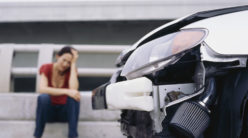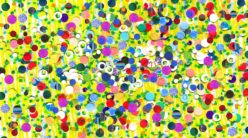We often hear of people being addicted to crystal meth, heroin, and even alcohol, but one substance that often gets overlooked in regard to abuse and addiction is MDMA, also known as ecstasy. In 2013, more than 17 million people in America reported they had used ecstasy at least once. The highest rate of use was found among people between the ages of 18 and 25. Although MDMA is not nearly as abused as many other illegal substances, it can still have detrimental effects on one’s life as well as their friends, family, and loved ones. One reason perhaps that it is not nearly as abused as other drugs is that is not as addicting, especially when compared to cocaine and heroin.

What Are the Signs of MDMA Addiction?
When a person suffers from an addiction to MDMA, it is paramount that he or she receive treatment as soon as possible. There have been numerous reports of fatalities related to ecstasy abuse. When a person abuses this drug, he or she increases the chances of dying from any of the following:
- Seizure
- Brain swelling
- Hyperthermia
- Hemorrhagic stroke
- Metabolic disturbances
A person also increases the odds of dying from an MDMA-related death if he or she is mixing the drug with other substances, especially alcohol.
MDMA addiction signs can sometimes be confused with signs of other drug addictions. The most common symptoms associated with MDMA include:
- Nausea
- Euphoria
- Depression
- Blurred vision
- Distorted perception
- Liver failure
- Chills
- Increased energy
- Involuntary teeth clenching
- Decreased appetite
What happens when a person becomes addicted to MDMA?
When a person becomes addicted to MDMA, the effects are typically fairly similar to those that take place among other types of addictions. It is not uncommon for the person to have strong cravings for the drug as well as to go to any lengths to get a fix, including stealing money from friends and family, lying, and not maintaining employment.
What can a person do to overcome an addiction to MDMA?
Fortunately, there is treatment for MDMA addiction. Depending on the severity of a person’s addiction, inpatient or outpatient treatment may be recommended. Generally, inpatient treatment proves far more effective than outpatient because it completely cuts the person off from being able to access drugs. The person will be admitted into a residential setting and visitors will be restricted to only those people who have been approved as being clean and sober. There are a variety of activities that take place during MDMA treatment, including group therapy sessions, one-on-one counseling, AA/NA meetings, recreational activities and more.
If you would like to learn more about getting the help you need to overcome an addiction to MDMA, please contact Yellow Stone Recovery today.




